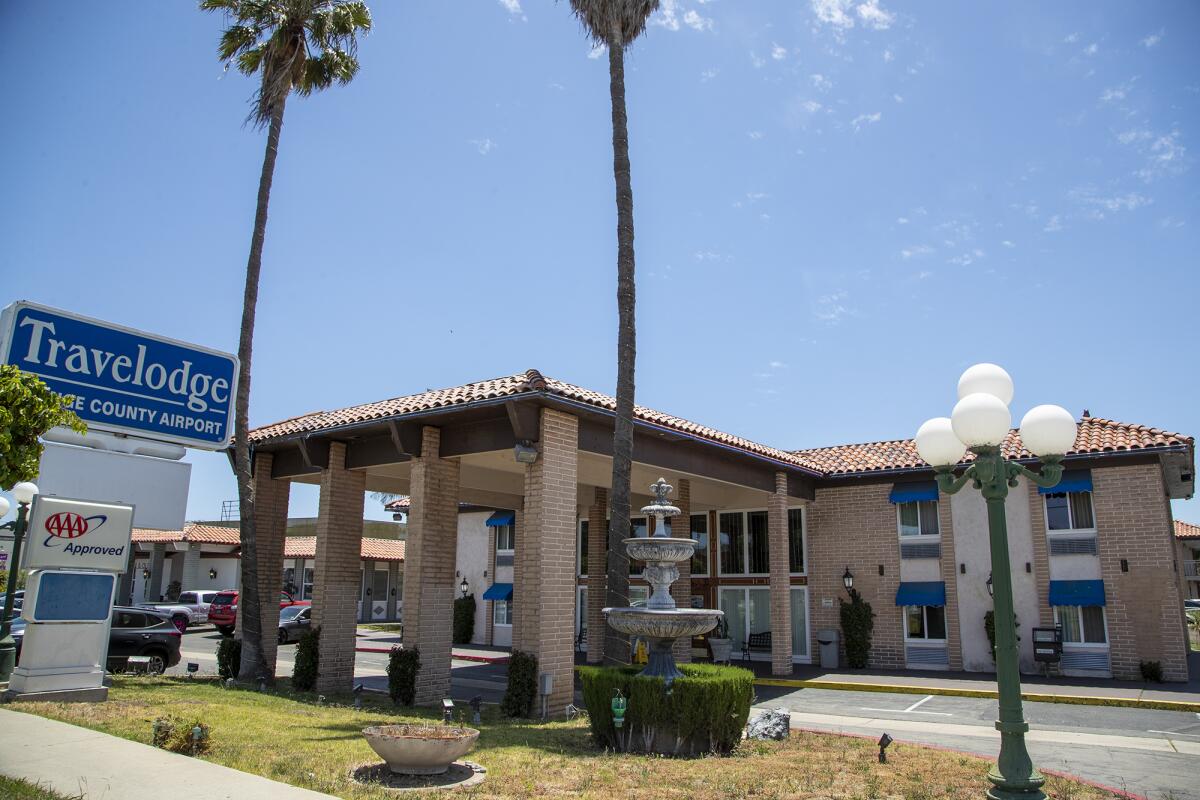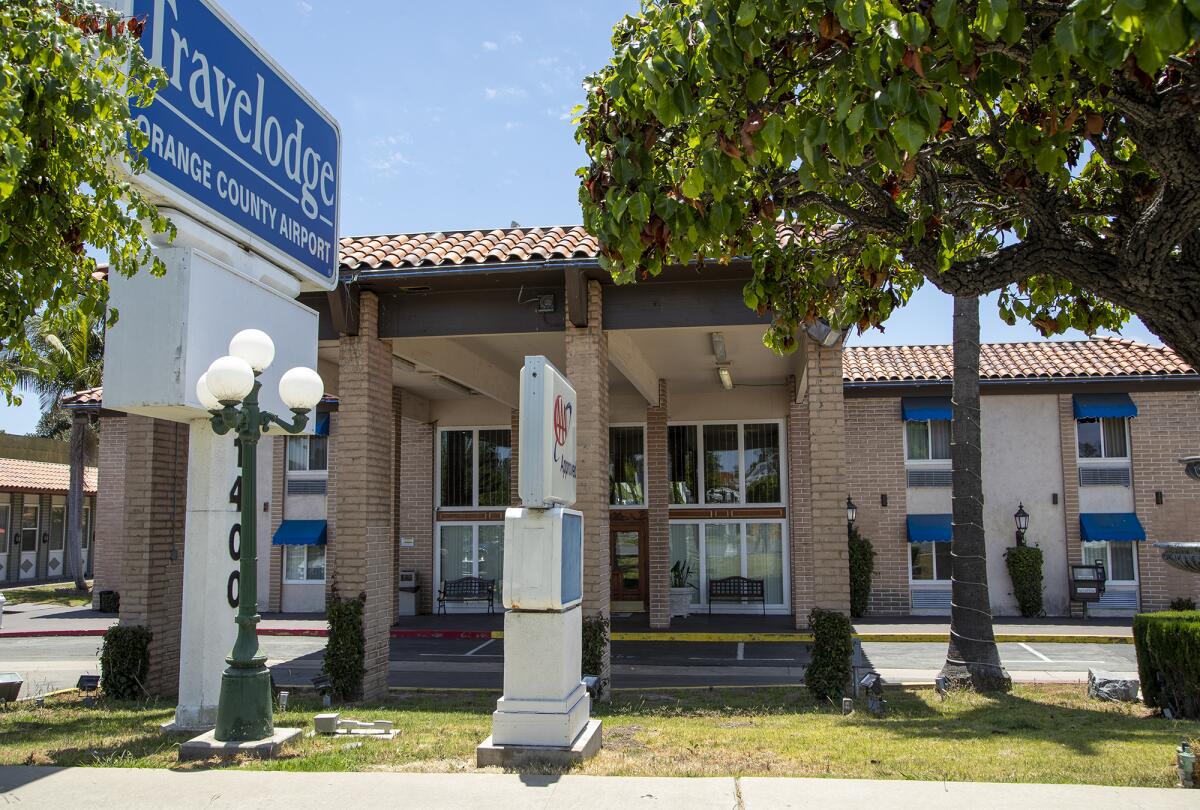Costa Mesa pays $4M toward converting Travelodge into 76 units of supportive housing

- Share via
Costa Mesa’s effort to convert underused motels into permanent housing for vulnerable residents gained momentum Tuesday, when the City Council allocated $4 million toward the renovation of a Bristol Street Travelodge that, when finished, will house another 76 residents.
The 3.5-acre parcel at 1400 Bristol currently houses 120 rooms of temporary lodging as well as a commercial building leased by Mediterranean restaurant Pom & Olive.
But once construction begins in 2024, the Travelodge will be reimagined into 76 studio and one-bedroom apartments for extremely low-income residents, with two two-bedroom units for onsite service providers. The restaurant will continue to lease its building.
The work will be overseen by the Midway City-based nonprofit developer American Family Housing (AFH), an authorized developer for the state’s third round of Project Homekey funding.
AFH not only builds affordable projects but also serves the people who live there. It owns and operates 49 affordable housing projects, including three Homekey-funded developments, comprising 386 units in Orange and Los Angeles counties.
The developer is in escrow to purchase the Travelodge and will provide wraparound service after the site opens to eligible residents in 2025.
Robbins described permanent supportive housing as a final component of the process of transitioning homeless and at-risk individuals from the streets into shelters and, ultimately, homes.
“You take people who were formerly experiencing homelessness, who cannot live on their own because they were homeless for so long or have disabilities or other things, and you bring the services on site to them,” he said.
The project’s $45.4-million total cost combines Costa Mesa’s $4 million with $27.7-million California Project Homekey funding that will go to AFH for construction, $6.8 million in county housing funds and a $3 million potential commitment from neighboring Newport Beach, which would use a portion of the units.
Costa Mesa’s contribution comes from $1.5 million in federal American Rescue Plan act funding and another $2.5 million of low- to moderate-incoming housing asset funds that will be repaid, with interest, by the developer throughout a 55-year affordability covenant.

Among the 76 new units, 48 will be subsidized through housing vouchers issued by the county, which will select residents based on need. Of the remaining 28 units, 16 will go directly to Costa Mesa residents and 12 will go to those from Newport Beach.
Approval of the Travelodge conversion comes as another Costa Mesa Homekey property — a former Motel 6 at 2274 Newport Blvd.— is also being renovated to provide 87 units of permanent supportive housing for at-risk veterans and seniors.
Councilman Don Harper questioned the impact of such projects on surrounding areas.
“I just want to know how this level of income in neighborhoods, how it impacts the community and if it’s negative or positive or it’s neutral,” he said.
Robbins cited a recent impact study produced by UC Irvine’s Livable Cities Lab, which found while surrounding home values increased after such projects were built, assaults, burglaries and vehicle thefts went down.
Costa Mesa resident Bob Morse, who spoke in a public comment portion of the meeting, echoed this sentiment.
“One of the amazing things [from the report] was the closer you are to the project, the more your property value goes up,” he said. “So if you’re right next door, you’ve got a bonus coming.”
Council members approved the $4-million allocation 5-1 (Councilman Jeff Harlan was absent) with Harper casting the lone dissenting vote.
Mayor John Stephens called the development a “wonderful collaboration” to reduce homelessness.
“When we get done with this, just to put it into perspective, we’ll have 163 permanent supportive homes where people will get shelter every night,” he said.
All the latest on Orange County from Orange County.
Get our free TimesOC newsletter.
You may occasionally receive promotional content from the Daily Pilot.




